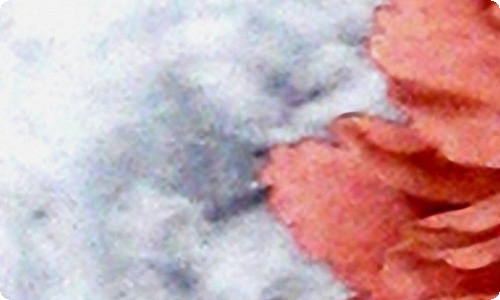
双语哲理故事
大家都知道,故事是写“事”的,下面一起看看双语哲理故事吧!
双语哲理故事【1】
One day, there was a blind man sitting on the steps of a building with a sign by his feet, that reads: "I am blind, please help."
一天,一位盲人坐在建筑物的台阶上,他的脚边放着一个牌子,那上面写着:“我是盲人,请帮帮我”。
A creative publicist was walking by the blind man and stopped to observe that the man only had a few coins in his hat. He put a few of his own coins in the hat, and without stopping to ask for permission(征求许可) , took the sign, turned it around, and wrote a new message. He then placed the sign by the feet of the blind man, and left.
一个有创意头脑的广告员走到那位盲人身旁,他发现盲人的帽子里只有很少的一些硬币。于是没有征得盲人的同义,他就拿过牌子,将牌子调过来,写了一些字。他将牌子放到盲人的脚下然后离开了。Later that afternoon the creative publicist returned by the blind man and noticed that his hat was almost completely full of bills and coins. The blind man recognized his footsteps and asked if it was him who had changed his sign? He also wanted to know what the man wrote on it.
那天下午的晚些时候那位广告员回到盲人哪儿,发现他的帽子里装满了钞票和硬币。盲人认出了他的脚步声,问广告员是不是将他的牌子欢乐?盲人想知道牌子上写了什么。
The blind man didn't know that his new sign reads as this: "It's spring now, but I can't see it."
盲人不知道调换了面的牌子上写着:“现在是春天,但我却看不到春天。”
双语哲理故事【2】
Marc Rich, who died yesterday, aged 78, was one of the most controversial business figures of the late 20th century. He was a gifted, aggressive commodity trader with a global network of business interests and contacts – and an amoral attitude to pursuing them that empire-building 18th century merchants would have both recognised and applauded.
马克?里奇(Marc Rich)于周三去世,终年78岁。他是二十世纪末最具争议的商业人物之一,作为一名富有天分、作风激进的大宗商品交易员,他建立起了一个由商业利益和人脉资源交织而成的`全球网络,并以一种无视道德观念的态度追逐利益——十八世纪开拓帝国的商人们或许会认可及赞赏这种方式。
But while his dealings with regimes outlawed by the US – from Iran to Cuba – fed his fortune, they irreversibly tainted his reputation.
虽然与伊朗、古巴等被美国宣布为非法政权的国家进行交易增加了他的财富,但这也无可挽回地玷污了他的名誉。
Rich would have dearly wished it otherwise. But his life – if not his legacy – hinged on two events: his indictment by the US in 1983 on charges that included tax evasion and illegally trading with Iran, and his 2001 pardon, one of Bill Clinton’s last acts as president, which Rich himself hoped would set his record straight.
里奇或许曾经真心实意地希望事情按另一条轨迹发展。但他的人生——同时也是他留下的遗产——主要被两件事情决定:1983年他被美国政府以逃税、与伊朗进行非法交易等罪名起诉,以及2001年他所得到的赦免,这是比尔?克林顿(Bill Clinton)在总统任期内所做的最后几件事情之一。里奇希望这次赦免能够洗刷自己的污点。
The reverse turned out to be true. The pardon – for which Rich’s friends, allies and ex-wife had secretly lobbied – not only polluted Mr Clinton’s own legacy, it reignited interest in Rich’s own case, raising his carefully-sheltered profile and obscuring his other achievements as a pioneer in the commodities business. It made it impossible for him to return to the US.
但事情的结果却正好相反。这次赦免——里奇的朋友、支持者以及前妻为此曾秘密展开游说——不仅污损了克林顿自己的政治遗产,还重新激起了人们对于里奇原本案情的兴趣,抬高了他刻意压低的曝光率,同时掩盖了他作为大宗商品交易领域先驱者所取得的其他成就。这一切使得里奇无法再返回美国。
Rich’s resentment at being, in his eyes unjustly, handed the role of fugitive from US justice had deep roots. Born Marcell David Reich in Antwerp, Belgium, in 1934, Rich’s early mentor and employer was his father, who had himself been driven from the family home on the border of what is now Poland and Ukraine by anti-Jewish pogroms after the first world war. As the Nazis advanced on Belgium in 1940, the Reich family fled to the US, via Vichy France. Rich later claimed to have attended 12 different primary and secondary schools in as many years.
在里奇看来,自己被美国司法部门不公正地扣上了逃犯的帽子,他的这种不满情绪有着很深的根源。里奇于1934年出生于比利时的安特卫普,原名马塞尔?大卫?赖克(Marcell David Reich)。里奇早期的导师和雇主是他的父亲。第一次世界大战后,里奇的父亲在反犹大屠杀的威胁下被迫离开了现在位于波兰和乌克兰边境的家乡。随着纳粹于1940年侵入比利时,里奇一家经由维希法国(Vichy France)逃到了美国。里奇后来宣称,自己在那些年间先后在12所不同的小学以及中学就读。
But the proving ground for the business skills he acquired while working for his father was Philipp Brothers – Phibro – the oil, grain and metals trader. There, in the 1950s, Rich met his business partner Pincus “Pinky” Green (who was also later pardoned by Mr Clinton).
直到里奇开始为菲布罗(Philipp Brothers,简称Phibro)工作时,他才开始展现出他在自己父亲手下干活时学到的商业技巧。菲布罗是一家经营石油、谷物和金属的大宗商品交易商。二十世纪五十年代,里奇在菲布罗遇到了自己的商业伙伴、绰号“Pinky”的平卡斯?格林(Pincus Green,其后也被克林顿赦免)。
They set out on their own in 1974, forming Zug-based Marc Rich + Co just as the price of oil was surging as a result of the Arab embargo, and then building on the growing appetite of a globalising world for commodities.
两人于1974年自立门户,在瑞士楚格(Zug)成立了马克里奇公司(Marc Rich + Co)。当时正值石油价格因阿拉伯国家的禁运限制大幅飙涨之际。全球化导致的大宗商品国际需求上升也为该公司带来了发展动力。
Rich’s key insight was that oil – and other raw materials – could be traded with less capital, and fewer assets, than the big oil producers thought, if backed by bank finance. It was this highly leveraged business model that became the template for modern traders, including Trafigura, Vitol, and Glencore – which was born from a buyout of his interest in the commodity trading arm of Marc Rich + Co – and this year merged with Xstrata.
里奇最主要的观点是,如果有银行融资的支持,进行石油以及其他原材料的交易所需的资本和资产比大型石油生产商所设想的少得多。这种高度杠杆化的商业模式成为了托克(Trafigura)、维多(Vitol)以及嘉能可(Glencore)等现代大宗商品交易商的经营模板。其中,嘉能可是在马克里奇公司大宗商品交易部门的管理层收购了里奇的全部权益之后诞生的,并在今年完成了与斯特拉塔(Xstrata)的合并交易。

文档为doc格式



